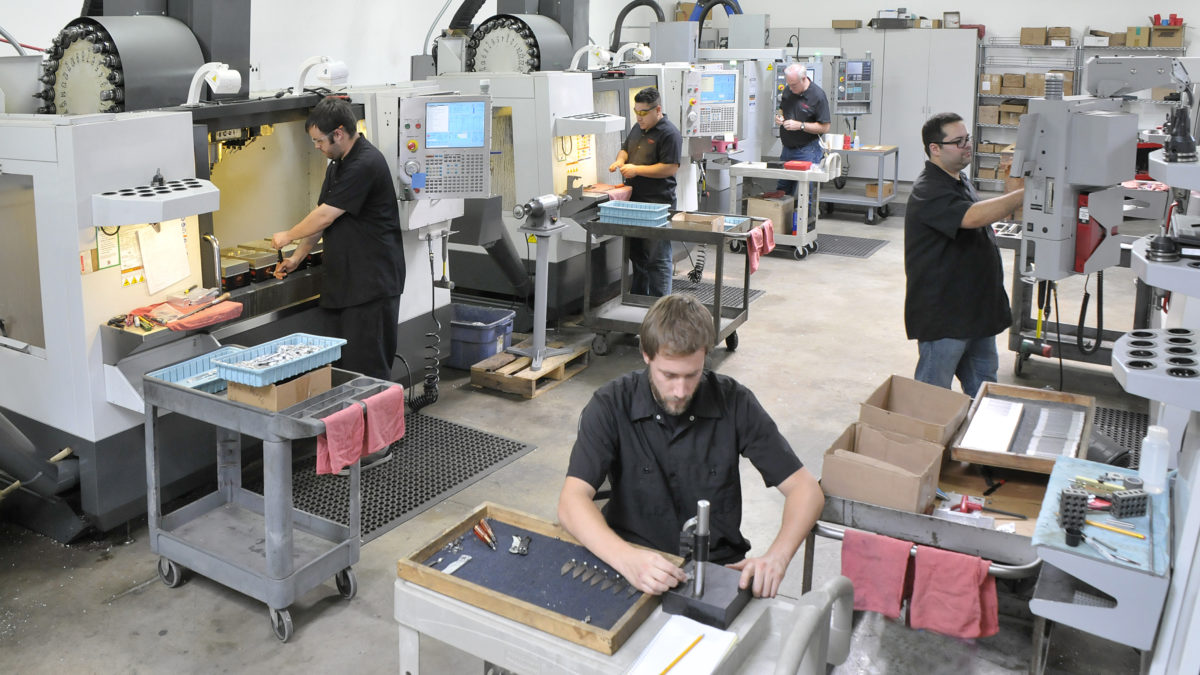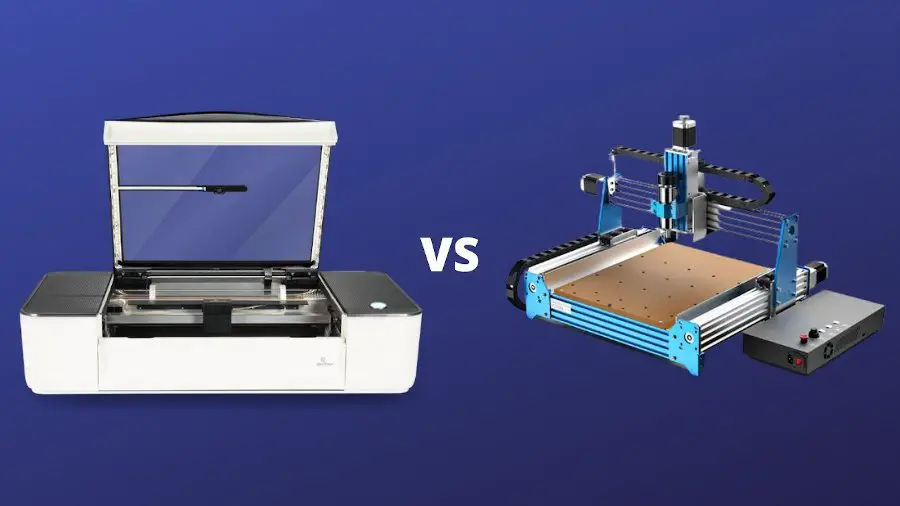Table of Contents
CNC machining is a well-known manufacturing process that has been around for decades. It has revolutionized the way we produce precision parts and components. However, one question that arises in the minds of many is whether CNC machining is expensive or not. In this article, we will explore this question in depth and provide you with all the information you need to make an informed decision.
If you are considering CNC machining for your next project, it is important to understand the cost implications of this manufacturing process. While CNC machining may seem expensive at first glance, there are many factors that can impact the cost, such as the complexity of the part, the materials used, and the quantity produced. By the end of this article, you will have a better understanding of the cost of CNC machining and whether it is the right option for your next project.
CNC machining can be expensive depending on various factors such as the complexity of the design, material, quantity, and the required finishing. However, CNC machining provides greater accuracy, consistency, and efficiency compared to traditional machining methods, which can save costs in the long run. Additionally, CNC machining can reduce labor costs as it requires minimal supervision and can run continuously for extended periods.
Is CNC Machining Expensive?
When it comes to manufacturing precision parts, CNC machining is known for its accuracy and efficiency. However, many people wonder if this process is expensive. In this article, we will explore the costs associated with CNC machining and determine if it is a cost-effective option for your manufacturing needs.
What is CNC Machining?
CNC (Computer Numerical Control) machining is a manufacturing process that utilizes computer software and machines to create intricate and precise parts. The software controls the machine, which cuts, drills, and shapes the material according to the design specifications. CNC machining can work with a wide range of materials, including metals, plastics, and wood.
Benefits of CNC Machining
One of the main benefits of CNC machining is its precision. The software controls the machine, which ensures that each part is made to exact specifications. This level of accuracy is difficult to achieve with traditional manufacturing methods. CNC machining is also efficient, allowing for faster production times and lower labor costs.
CNC Machining Vs. Traditional Manufacturing
While CNC machining can be more expensive than traditional manufacturing methods, it is often more cost-effective in the long run. Traditional manufacturing methods require a significant amount of manual labor, which can be costly. Additionally, traditional methods are often less precise, leading to more errors and inefficiencies.
Factors That Affect the Cost of CNC Machining
There are several factors that can affect the cost of CNC machining. These include:
Material
The type of material used can greatly impact the cost of CNC machining. Some materials, such as titanium or exotic alloys, are more expensive than others.
Design Complexity
The complexity of the design can also affect the cost of CNC machining. More intricate designs require more time and precision, which can drive up the cost.
Quantity
The quantity of parts being produced can impact the cost of CNC machining. Higher quantities typically result in lower per-part costs.
Tolerance Requirements
Tolerance requirements refer to the degree of accuracy needed for the parts being produced. Tighter tolerances require more precision, which can increase the cost of CNC machining.
How to Reduce the Cost of CNC Machining
While CNC machining can be expensive, there are ways to reduce the cost. These include:
Material Selection
Choosing a less expensive material can help reduce the cost of CNC machining.
Simplifying the Design
Simplifying the design can reduce the time and precision needed for CNC machining, which can lower the cost.
Increasing the Quantity
Increasing the quantity of parts being produced can result in lower per-part costs.
Relaxing Tolerance Requirements
Relaxing tolerance requirements can reduce the precision needed for CNC machining, which can lower the cost.
Conclusion
In conclusion, CNC machining can be more expensive than traditional manufacturing methods, but it is often more cost-effective in the long run. The cost of CNC machining can be affected by factors such as material, design complexity, quantity, and tolerance requirements. However, there are ways to reduce the cost, such as material selection, simplifying the design, increasing the quantity, and relaxing tolerance requirements. If you need precision parts, CNC machining may be the right choice for your manufacturing needs.
Freequently Asked Questions
Computer Numerical Control (CNC) machining has become a popular manufacturing process across various industries. However, many people often wonder whether CNC machining is expensive or not. Here are some frequently asked questions and answers about the cost of CNC machining.
What factors affect the cost of CNC machining?
The cost of CNC machining depends on various factors such as the complexity of the part, the material used, the quantity of parts needed, and the turnaround time required. The more complex the part design, the higher the cost of machining. Additionally, using high-end materials like titanium or carbon fiber can also increase the cost. Larger quantities of parts can result in lower unit costs, while shorter turnaround times may incur additional charges for expedited services.
Moreover, the cost of CNC machining can also be affected by the location of the machining facility. Machining services located in developed countries often charge higher rates due to higher labor costs and other expenses compared to those located in developing countries.
Is CNC machining cost-effective for small businesses?
CNC machining can be cost-effective for small businesses depending on the production volume and the complexity of the parts required. For small volume productions, CNC machining can be a viable option, but it may not be the most cost-effective solution for larger volume productions. In such cases, other manufacturing methods such as injection molding or casting may be more cost-effective.
However, CNC machining offers high precision and excellent surface finishes, making it a popular choice for producing complex parts with tight tolerances. Small businesses that require such parts can benefit from CNC machining by outsourcing their production to a reliable machining service.
How does CNC machining compare to traditional machining in terms of cost?
CNC machining is generally more expensive than traditional machining methods like manual milling or turning. This is because CNC machines require specialized software, tooling, and equipment, which add to the overall cost of production. However, CNC machining offers higher precision, faster production times, and consistent quality, which can make it a more cost-effective solution in the long run.
Traditional machining methods may be more cost-effective for small production runs or simple parts, but they can be time-consuming and require skilled labor. CNC machining, on the other hand, can produce complex parts with minimal human intervention, resulting in lower labor costs and faster lead times.
Can outsourcing CNC machining reduce costs?
Outsourcing CNC machining to a reliable and experienced machining service can help reduce costs for businesses. This is because outsourcing eliminates the need for businesses to invest in expensive machining equipment, software, and tooling. Additionally, outsourcing to a machining service located in a lower-cost region can result in significant savings on labor costs.
Moreover, outsourcing CNC machining can also help businesses save time and resources on part design and production, allowing them to focus on their core competencies and business goals.
What are some cost-saving measures for CNC machining?
There are several ways to save costs on CNC machining, such as designing parts for manufacturability, optimizing tool paths, and selecting the right material for the job. Designing parts for manufacturability involves simplifying the part design and reducing the number of machining operations required. This can result in lower machining costs and faster production times.
Optimizing tool paths can also help reduce machining time and costs by minimizing unnecessary movements and tool changes. Moreover, selecting the right material for the job can help reduce material waste and machining costs while ensuring the desired quality and functionality of the finished product. Working with an experienced and knowledgeable machining service can also help businesses identify and implement cost-saving measures for their CNC machining needs.
In conclusion, CNC machining may seem expensive at first glance, but it offers a wide range of benefits that make it a cost-effective option in the long run. The precision and accuracy of CNC machines ensure that parts are produced correctly the first time, reducing the need for costly rework. Additionally, CNC machines can operate continuously, allowing for high-volume production and quick turnaround times.
While the initial investment in CNC machines may be higher than traditional machining methods, the increased efficiency and productivity can lead to significant cost savings over time. Plus, with advancements in technology and automation, CNC machining is becoming more affordable and accessible for small businesses and individuals.
Overall, it’s important to consider the long-term benefits and potential cost savings when evaluating the expense of CNC machining. With its precision, speed, and efficiency, CNC machining offers a cost-effective solution for a wide range of industries and applications.
Request a quote today!
[contact-form-7 id="1578" title="Contact form"]
Please compress the file into a ZIP or RAR file before uploading. Alternatively, send through your RFQ by email.
enquires@unitymanufacture.com





